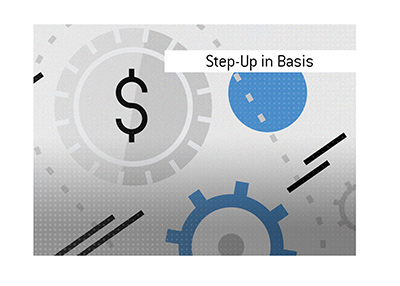Definition of Step-Up In Basis
You have likely heard President Biden speaking about increasing taxes on the wealthy.
One of President Biden's proposals is eliminating the "step-up in basis", which many claim is a loophole that benefits the very wealthy in the United States.
Let's give an example of "step-up in basis".
 You purchase 1,000 shares of Microsoft at $50 and hold these shares all of your life.
You purchase 1,000 shares of Microsoft at $50 and hold these shares all of your life. At death, these shares at worth $200. These shares are passed on to your only living heir.
Now, capital gains have never been paid on these shares, as you held them right until you died.
"Step-up in basis" refers to readjusted the value of the asset for tax purposes.
Let's say that the person who receives these shares decides to sell them at $200/share after holding them for two years.
Do they pay capital gains based on the original purchase price of $50?
No.
With "step-up in basis", the shares are valued at $200/share for tax purposes when they pass from the deceased original holder of the shares to the heir.
So, in this case, the heir would pay no capital gains tax, as they received the shares at $200/share and sold them at $200/share.
Tax planners will advise wealthy clients to place their appreciating assets in trust for their heirs. With the "step-up in basis", these heirs will avoid massive tax bills when their parents/relatives pass away.
President Biden is attempting to do away with this rule, though deep-pocketed people in the United States are mostly against it, for obvious reasons.
President Biden says that doing away with "step-up in basis" would raise roughly $100 billion over a ten year period in the United States.
--
Davemanuel.com Articles That Mention Step-Up In Basis:
None
